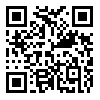Volume 2, Issue 3 (Summer 2022)
J Clin Sport Neuropsychol 2022, 2(3): 0-0 |
Back to browse issues page
Download citation:
BibTeX | RIS | EndNote | Medlars | ProCite | Reference Manager | RefWorks
Send citation to:



BibTeX | RIS | EndNote | Medlars | ProCite | Reference Manager | RefWorks
Send citation to:
Javadi Bazargani M. The Impact of of Karate Techniques Training on Memory and Attention of Students with Attention Deficit Hyperactivity Disorder. J Clin Sport Neuropsychol 2022; 2 (3) : 4
URL: http://jcsnp.ir/article-1-50-en.html
URL: http://jcsnp.ir/article-1-50-en.html
PHD student of Exceptional children and Educational Sciences, Central Tehran Branch Islamic Azad University, Tehran, Iran.
Abstract: (2086 Views)
Background and Purposes: Attention deficit hyperactivity disorder (ADHD) is a neurodevelopmental disorder and one of the most common childhood disorders. The present study aimed to determine the effect of karate kata techniques training on selective attention and working memory (visual-spatial) of students with ADHD.
Method: The present research is a quasi-experimental study. It was designed with a pretest-posttest design with a control group. Thirty students with ADHD were randomly sampled among male and female students of first to fifth grade (7-11 years of age) in 2015-16. They were placed in two groups consisting of 15 individuals(control and test).In order to diagnose this disorder, revised short form of Connors's Rating Scales (Conners, 1990) was used. Before beginning the training, both groups performed the Stroop selective attention test (Stroop, 1935), and square designing micro test, digit span test (numeric visual memory), and letter-number sequence subsclaes of the 5th edition of Wechsler intelligence scale for children (Wechsler, 2015) as pretests. Then, the experimental group received the training program for 22 sessions (including two sessions for teaching the basics and basic terms of Kata and 20 sessions for training for 60 minutes). After finishing the training program, the test was carried out for two groups, and the data were analyzed using the analysis of covariance in SPSS software.
Findings: Results showed that teaching karate kata techniques affects the degree of visual numeric memory (forward function) and working memory (visual-spatial) (p<0.05). But it does not effective on the visual numeric memory (reverse function), the total score of visual memory, digit span, and selective attention (interference score and interference time) (p>0.05).
Conclusion: Karate kata techniques training is a effective method for enhancing students' working memory (visual-spatial) with ADHD.
Method: The present research is a quasi-experimental study. It was designed with a pretest-posttest design with a control group. Thirty students with ADHD were randomly sampled among male and female students of first to fifth grade (7-11 years of age) in 2015-16. They were placed in two groups consisting of 15 individuals(control and test).In order to diagnose this disorder, revised short form of Connors's Rating Scales (Conners, 1990) was used. Before beginning the training, both groups performed the Stroop selective attention test (Stroop, 1935), and square designing micro test, digit span test (numeric visual memory), and letter-number sequence subsclaes of the 5th edition of Wechsler intelligence scale for children (Wechsler, 2015) as pretests. Then, the experimental group received the training program for 22 sessions (including two sessions for teaching the basics and basic terms of Kata and 20 sessions for training for 60 minutes). After finishing the training program, the test was carried out for two groups, and the data were analyzed using the analysis of covariance in SPSS software.
Findings: Results showed that teaching karate kata techniques affects the degree of visual numeric memory (forward function) and working memory (visual-spatial) (p<0.05). But it does not effective on the visual numeric memory (reverse function), the total score of visual memory, digit span, and selective attention (interference score and interference time) (p>0.05).
Conclusion: Karate kata techniques training is a effective method for enhancing students' working memory (visual-spatial) with ADHD.
Article number: 4
Keywords: Attention-deficit hyperactivity disorder [MeSH], Karate kata techniques training [Mesh], Selective attention [MeSH], Working memory [MeSH]
Type of Study: Applicable |
Subject:
Clinical Sport Neurpsychology
Received: 2021/12/22 | Accepted: 2022/02/20 | Published: 2022/04/1
Received: 2021/12/22 | Accepted: 2022/02/20 | Published: 2022/04/1
| Rights and permissions | |
 |
This work is licensed under a Creative Commons Attribution-NonCommercial 4.0 International License. |





